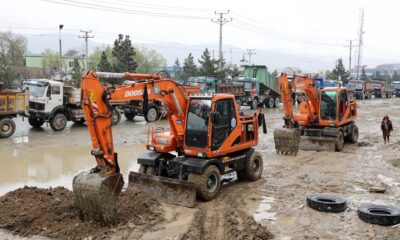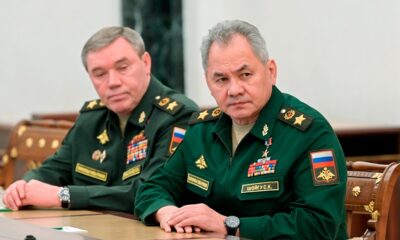Latest News
Red Cross set to end funding at 25 hospitals in Afghanistan
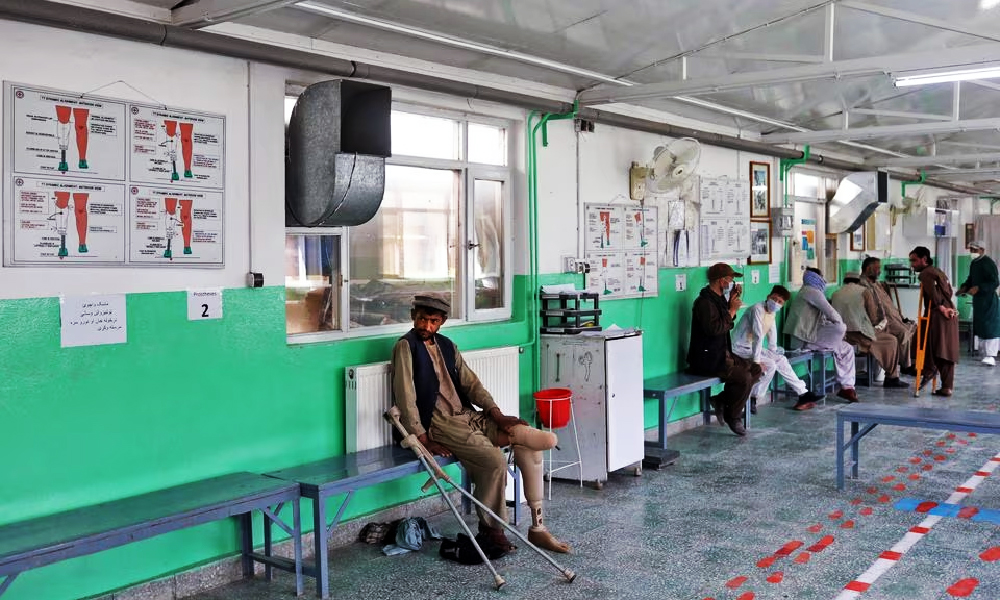
The International Committee of the Red Cross (ICRC) is likely to end the financial running of 25 Afghan hospitals by the end of August due to funding constraints, a spokesperson told Reuters, amid growing concerns over a plunge in aid to Afghanistan.
“Although we continue to engage with government ministries, donors, and organisations to find alternative sustainable support mechanisms for the hospital sector, the phase-out of the Hospital Program is expected to happen tentatively at the end of August,” Diogo Alcantara, ICRC’s spokesperson for Afghanistan, told Reuters on Thursday.
“The ICRC does not have the mandate nor the resources to maintain a fully functioning public health-care sector in the longer term,” Alcantara said.
In April, ICRC said its governing board approved 430 million Swiss francs ($475.30 million) in cost reductions over 2023 and early 2024 and a rolling back of operations in some locations as budgets for humanitarian aid were expected to decrease.
“The financial difficulties the ICRC is facing have sped up, in transparency with Islamic Emirate of Afghanistan (IEA) authorities, the expected return of the full responsibilities of the health services to the Ministry of Public Health,” Alcantara said, referring to the Taliban administration.
The program’s end comes amid growing concerns over cuts to Afghanistan’s humanitarian aid, two years after the IEA took over and most other forms of international assistance, which formed the backbone of the economy, were halted.
The Geneva-based organisation would continue its other Afghanistan health programs, including rehabilitation support for people with disabilities, Reuters reported.
A spokesman for the health ministry did not respond to request for comment.
It was not clear how much was needed to pay for the operations, which fund salaries and other costs at many of Afghanistan’s major hospitals serving millions of people, and if IEA authorities could cover that amount from the fiscal budget.
An Afghan finance ministry spokesman said this year’s budget had been finalised, but not publicly released.
The hospitals have been supported by ICRC since a few months after foreign forces left in August 2021.
Development funding was cut to Afghanistan as the IEA – which has not formally been recognised by any country – took over the country. The sudden financial shock imperilled critical public services including health and education.
The ICRC and other agencies including the U.N. stepped in to try to fill gaps.
“The (ICRC) took this decision back then to save the healthcare system from collapsing due to the financial crises that Afghanistan was experiencing and because many development agencies and other organisations left the country while the ICRC stayed,” Alcantara said.
The ICRC hospital program had originally covered 33 hospitals, eight of which have already been phased out, paying for the salaries of over 10,000 health workers and some medical supplies. The hospitals provided thousands of beds and served areas encompassing more than 25 million people – over half the population.
Neighbouring Pakistan is closely watching the development, a senior government official told Reuters. Pakistan, a major destination for healthcare for Afghans, routinely has thousands of medical visa applications lodged with its embassy, officials said.
“We are concerned about a further influx of medical patients,” said the Pakistani official, who declined to be identified to speak openly about sensitive diplomatic issues.
Pakistan’s foreign office did not reply to request for comment.
There is growing alarm over cuts to aid to Afghanistan, where the U.N. humanitarian plan for 2023 is only 25% funded, even after requested budget was downgraded from $4.6 billion to $3.2 billion.
Diplomats and aid officials say concerns over IEA restrictions on women alongside competing global humanitarian crises are causing donors to pull back on financial support. The Islamic Emirate has ordered most Afghan female aid staff not to work, though granted exemptions in health and education.
Almost three-quarters of Afghanistan’s population are now in need of humanitarian assistance, according to the aid agencies.
Latest News
Three road construction projects launched in Kabul
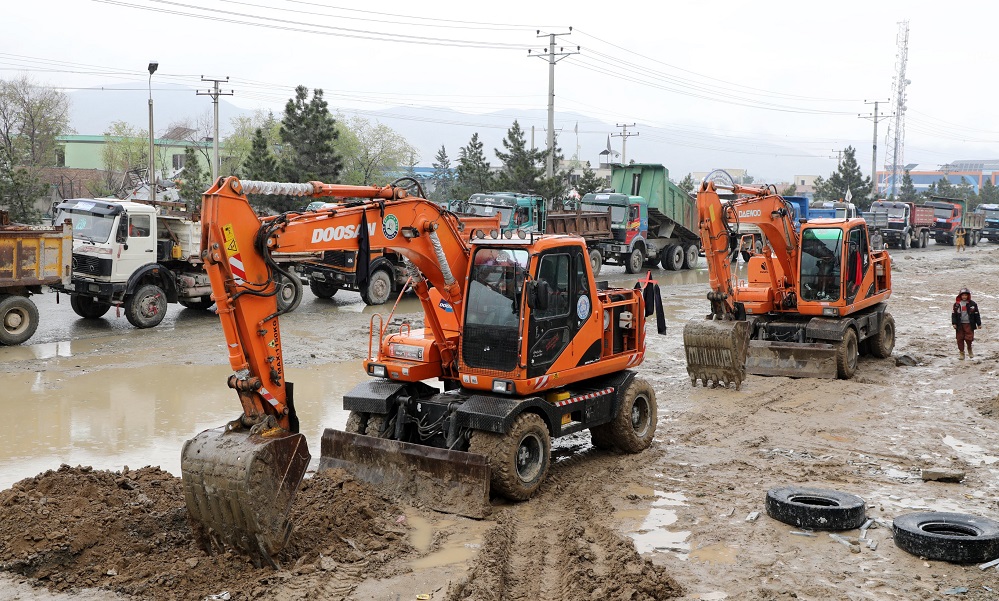
Three road construction projects worth about one billion Afghanis started in capital Kabul on Saturday.
The projects were inaugurated by Deputy Prime Minister for Economic Affairs Mullah Abdul Ghani Baradar.
The projects are: the second phase of Kotal Khairkhane road, the first part of the Shahid square to Qasaba, and the Airport road to Gumruk.
In the inauguration ceremony, Mullah Baradar said that Kabul municipality is working hard to beautify and regulate the city, and people should cooperate with the government in protecting public benefit projects.
He directed the officials of Kabul municipality to complete the mentioned projects on time and with good quality.
The second phase of Kotel Khairkhaneh road is 2.5 kilometers long and 60 meters wide. Thie road will cost 364 million Afghanis and will be completed in 20 months.
The Shahid square-Qasaba road is 1.8 kilometers long and 45 meters wide, which will be built at a cost of 175 million Afghanis in one year.
The Airport-Gumruk road is 2.7 km long and 60 meters wide, which will be completed at a cost of 407 million Afghanis in 20 months.
The projects are funded by Kabul Municipality.
Latest News
Russian defense minister says main threat for SCO countries emanates from Afghanistan
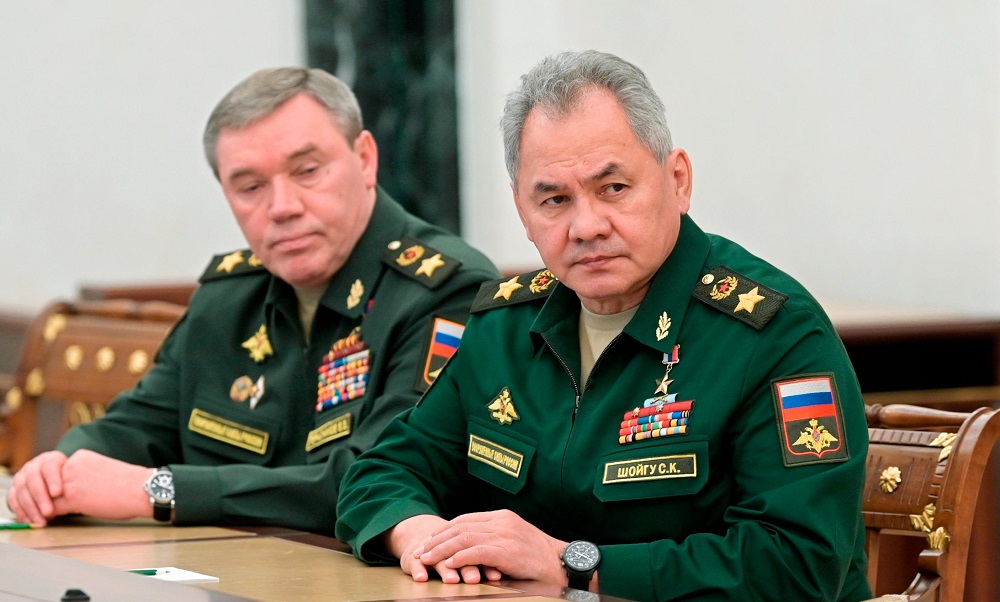
Russian Defense Minister Sergey Shoygu said on Friday that the main threat for the Shanghai Cooperation Organization (SCO) members emanates from Afghanistan where international terrorist groups find shelter due to unstable and indefinite political situation.
Speaking at a meeting of the SCO defense ministers in Kazakhstan’s capital Astana, Shoygu said Washington has stepped up efforts to restore its positions in Central and South Asia that were lost after the withdrawal of coalition troops from Afghanistan, Anadolu Agency reported.
The military chief called “unacceptable” the deployment of the American military infrastructure in the region, arguing that intentions should be regarded as “a direct threat to stability in the SCO space.”
According to him, the US is trying to impose a new security system in the Asia-Pacific region for dominance.
This comes as the Islamic Emirate has repeatedly emphasized that it does not allow anyone to pose threats to any other country from Afghanistan soil.
Recently, Mohammad Yaqub Mujahid, Acting Minister of National Defense Mohammad Yaqub Mujahid said that no destructive groups including Daesh have physical presence in Afghanistan,
Latest News
IEA calls Mujahideen Victory Day ‘freedom day’

In a statement on the occasion of the 32nd anniversary of the victory of the Mujahideen against the then communist government, the Islamic Emirate said that it is a day of freedom of the Afghan nation.
The Islamic Emirate described the coup by People’s Democratic Party of Afghanistan on 27th April 1978 as a dark day in history, as a result of which the people of Afghanistan suffered severe human and financial losses.
The statement said that the Afghan nation suffered huge casualties in their 14-year struggle against the thoughts and actions of the communists, as 1.5 million people died and millions more faced various hardships.
“After 20 years of Jihad, our country was freed from another occupation and the Islamic system was established, so the Islamic Emirate will make its utmost efforts so that the fruits of decades of sacrifice and struggle of this nation are not wasted,” the statement said.
“It was the wish of the martyrs to fully implement the Islamic system in the country, and therefore, the Islamic Emirate is trying to facilitate development and prosperity under the shadow of the Islamic system in order to realize the goals of the Afghan people’s jihads,” it added.
-

 Latest News4 days ago
Latest News4 days agoRashid Khan named AWCC’s brand ambassador
-

 World4 days ago
World4 days agoMalaysian navy helicopters collide in mid-air, 10 killed
-

 Sport4 days ago
Sport4 days agoJaiswal ton powers Rajasthan to big IPL win
-

 World4 days ago
World4 days agoNorth Korea officials visit Iran in a rare public trip
-

 Latest News5 days ago
Latest News5 days agoAt least 1,500 families affected by recent floods: IRW
-

 Sport4 days ago
Sport4 days agoMawj Sahil player scores stunning halfway line goal in 1-0 win over Jawanan Wahedi
-

 Sport3 days ago
Sport3 days ago‘Serious talent’ Fraser-McGurk bonds with Warner to light up IPL
-

 Latest News4 days ago
Latest News4 days agoUS report cites ‘significant deterioration’ in Afghan women’s rights last year






